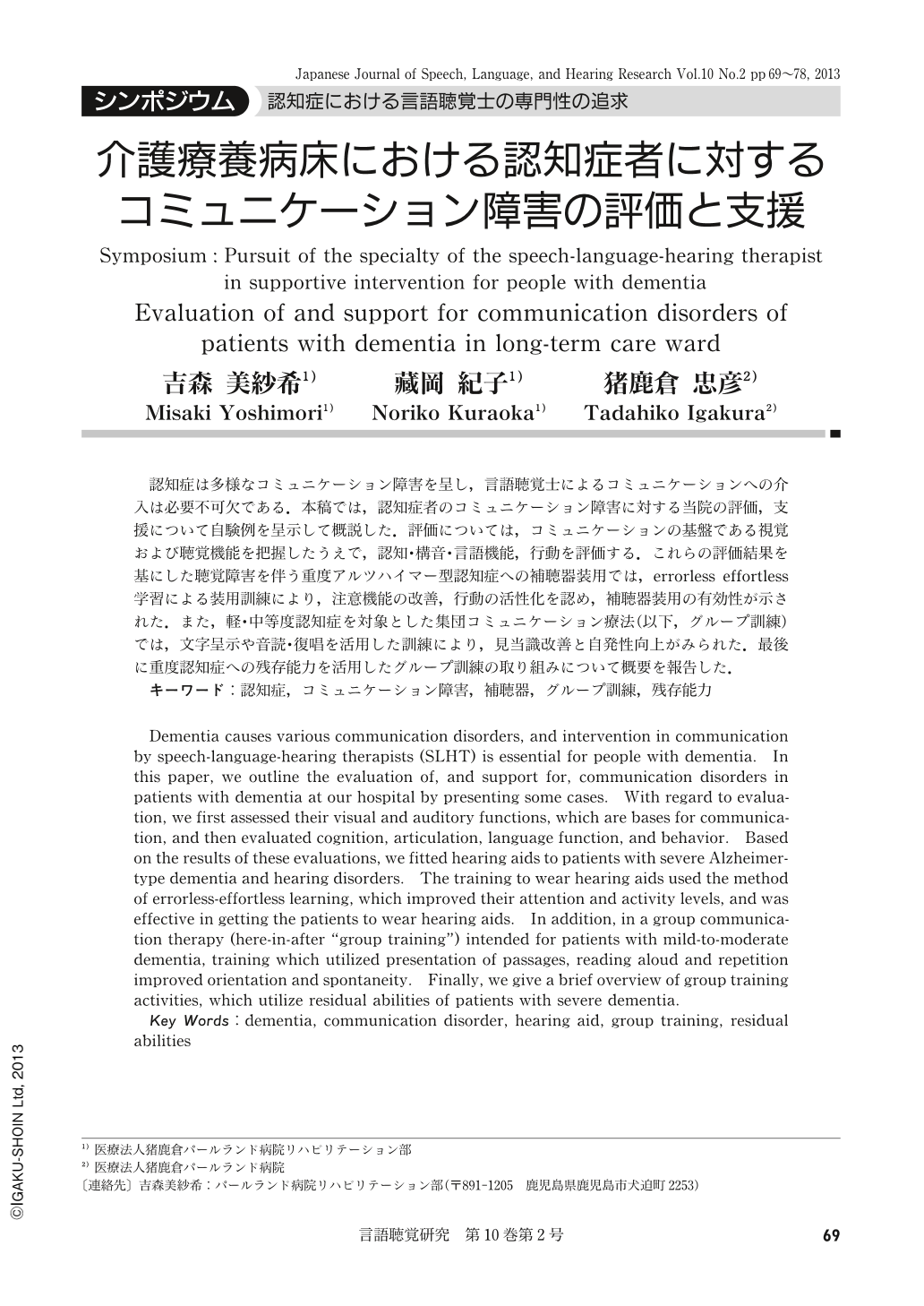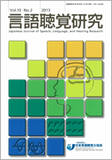Japanese
English
- 有料閲覧
- Abstract 文献概要
- 1ページ目 Look Inside
- 参考文献 Reference
認知症は多様なコミュニケーション障害を呈し,言語聴覚士によるコミュニケーションへの介入は必要不可欠である.本稿では,認知症者のコミュニケーション障害に対する当院の評価,支援について自験例を呈示して概説した.評価については,コミュニケーションの基盤である視覚および聴覚機能を把握したうえで,認知・構音・言語機能,行動を評価する.これらの評価結果を基にした聴覚障害を伴う重度アルツハイマー型認知症への補聴器装用では,errorless effortless学習による装用訓練により,注意機能の改善,行動の活性化を認め,補聴器装用の有効性が示された.また,軽・中等度認知症を対象とした集団コミュニケーション療法(以下,グループ訓練)では,文字呈示や音読・復唱を活用した訓練により,見当識改善と自発性向上がみられた.最後に重度認知症への残存能力を活用したグループ訓練の取り組みについて概要を報告した.
Dementia causes various communication disorders, and intervention in communication by speech-language-hearing therapists (SLHT) is essential for people with dementia. In this paper, we outline the evaluation of, and support for, communication disorders in patients with dementia at our hospital by presenting some cases. With regard to evaluation, we first assessed their visual and auditory functions, which are bases for communication, and then evaluated cognition, articulation, language function, and behavior. Based on the results of these evaluations, we fitted hearing aids to patients with severe Alzheimer-type dementia and hearing disorders. The training to wear hearing aids used the method of errorless-effortless learning, which improved their attention and activity levels, and was effective in getting the patients to wear hearing aids. In addition, in a group communication therapy (here-in-after "group training") intended for patients with mild-to-moderate dementia, training which utilized presentation of passages, reading aloud and repetition improved orientation and spontaneity. Finally, we give a brief overview of group training activities, which utilize residual abilities of patients with severe dementia.

Copyright © 2013, Japanese Association of Speech-Language-Hearing Therapists. All rights reserved.


